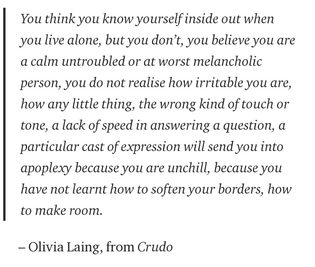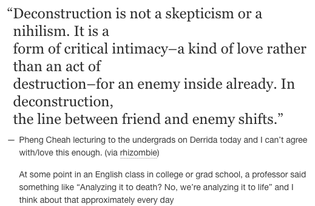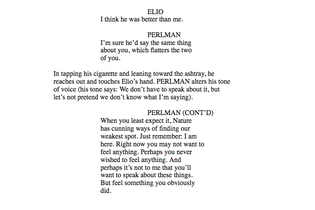“It’s hard not to think ‘death drive’ every time I go on the internet. Opening Safari is an actively destructive decision. I am asking that consciousness be taken away from me. Like the lost time between leaving a party drunk and materializing somehow at your front door, the internet robs you of a day you can visit recursively or even remember. You really want to know what it is about 20-somethings? It’s this: we live longer now. But we also live less. It sounds hyperbolic, it sounds morbid, it sounds dramatic, but in choosing the internet I am choosing not to be a certain sort of alive. Days seem over before they even begin, and I have nothing to show for myself other than the anxious feeling that I now know just enough to engage in conversations I don’t care about.”
https://www.nplusonemag.com/online-only/online-only/sad-as-hell/



